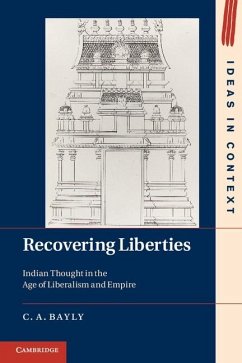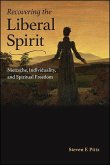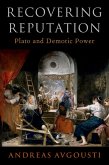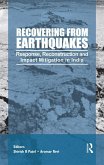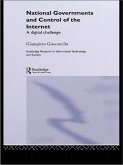One of the world's leading historians examines the great Indian liberal tradition, stretching from Rammohan Roy in the 1820s, through Dadabhai Naoroji in the 1880s to G. K. Gokhale in the 1900s. This powerful new study shows how the ideas of constitutional, and later 'communitarian' liberals influenced, but were also rejected by their opponents and successors, including Nehru, Gandhi, Indian socialists, radical democrats and proponents of Hindu nationalism. Equally, Recovering Liberties contributes to the rapidly developing field of global intellectual history, demonstrating that the ideas we associate with major Western thinkers - Mills, Comte, Spencer and Marx - were received and transformed by Indian intellectuals in the light of their own traditions to demand justice, racial equality and political representation. In doing so, Christopher Bayly throws fresh light on the nature and limitations of European political thought and re-examines the origins of Indian democracy.
Dieser Download kann aus rechtlichen Gründen nur mit Rechnungsadresse in A, B, BG, CY, CZ, D, DK, EW, E, FIN, F, GR, HR, H, IRL, I, LT, L, LR, M, NL, PL, P, R, S, SLO, SK ausgeliefert werden.

Im Jahr 1915 kehrte Mohandas K. Gandhi aus Südafrika nach Indien zurück. Eine Dekade später hatte er sich als führender Kopf der nationalistischen Bewegung gegen die britische Kolonialherrschaft etabliert. Der Mahatma war jedoch keineswegs der Erste, der sich in Indien für politische Freiheit und soziale Reformen starkmachte. Wie Christopher Bayly in seiner glänzenden Studie zeigt, begannen Inder bereits hundert Jahre vor Gandhi über Wege demokratischer Veränderungen zu debattieren. Die ersten indischen Liberalen zeigten großes Interesse an der Welt außerhalb des Subkontinents. Sie hatten Denker wie John Locke, John Stuart Mill und Jeremy Bentham rezipiert und sich mit den Kämpfen um Bürgerrechte in Europa und Lateinamerika vertraut gemacht. Indische Intellektuelle nutzten früh die Sprache der britischen Kolonialherren, um sich Ideen und Konzepte anzueignen, die, so Bayly, "weit über den unmittelbaren Inkubus kolonialer Herrschaft hinausgingen". Einer der "Helden" des Buches ist Rammohon Roy (1772-1833), ein kosmopolitisch ausgerichteter bengalischer Gelehrter und Dichter, dessen Bestreben es war, "eine indische Öffentlichkeit und Zivilgesellschaft von Grund auf zu entwickeln". Der in Cambridge lehrende Südasien-Spezialist Bayly, auch hierzulande bekannt geworden mit "Die Geburt der modernen Welt", einer Globalgeschichte des neunzehnten Jahrhunderts, zeigt mustergültig die Möglichkeiten einer "global intellectual history" auf. (Christopher A. Bayly: "Recovering Liberties". Indian Thought in the Age of Liberalism and Empire. Cambridge University Press, Cambridge 2012. 393 S., br., 24,79 [Euro].) eck
Alle Rechte vorbehalten. © F.A.Z. GmbH, Frankfurt am Main

